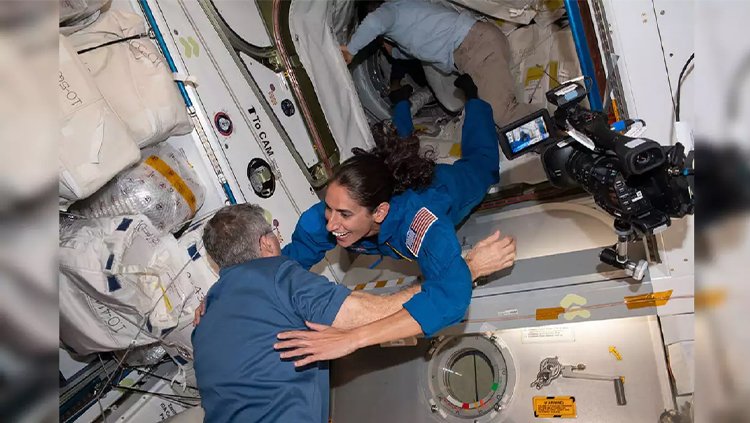Indian astronaut to join International Space Station crew in 2024
US Senator Bill Nelson Reveals India-US Collaboration on Nasa-Isro Nisar Satellite for Major Space Initiative in Recent Announcement

The collaboration between India and the United States in the realm of space exploration marks a significant step toward India's burgeoning space aspirations. Aimed at sending an Indian astronaut to the International Space Station (ISS) by the end of the upcoming year, this collaboration between the Indian Space Research Organisation (ISRO) and the National Aeronautics and Space Administration (NASA) was unveiled by US Senator Bill Nelson.
During his visit to India, Nelson highlighted the ongoing discussions and efforts to accelerate the human mission through private space launches. Details of this mission are actively being negotiated by ISRO.
This collaborative effort is an offshoot of the Initiative on Critical and Emerging Technologies (iCET) treaty inked between Indian Prime Minister Narendra Modi and US President Joe Biden last year. It emphasizes expanded cooperation in emerging space technologies.
Nelson also disclosed the formation of a joint working group between the two space agencies, focusing on human space missions and various other space research initiatives.
One of the major endeavors within this collaboration is the development of the Nasa-Isro Synthetic Aperture Radar (Nisar), termed as a "great observatory" by Nelson. Scheduled for launch in the first quarter of 2024, Nisar aims to combine the strengths of both agencies to monitor Earth more precisely. The satellite's integration and testing are underway in California and Bengaluru, respectively.
Anticipated to launch on India's Geosynchronous Satellite Launch Vehicle, Nisar’s dual spectrum bands will enhance its capability in studying terrestrial and atmospheric phenomena.
Notably, the mission to send an Indian astronaut to the ISS differs from India's indigenous Gaganyaan mission, which aims to launch astronauts from Indian soil to the lunar surface. Gaganyaan's unmanned pilot mission is slated for early next year.
Nelson's visit underscores the growing collaboration between international entities and India's evolving space sector. Despite India's progressive steps post-liberalization in 2020, the nation's private space entities face challenges in attracting clients and investments compared to US counterparts.
India, striving for a larger share in the global space market, has achieved significant milestones in space exploration, including landing a rover on the lunar south pole. Pawan Goenka, chairman of In-Space, foresees a substantial potential for India's private space market, projecting significant investments and market revenue in the coming decade.

 Sumit Rawat
Sumit Rawat 










